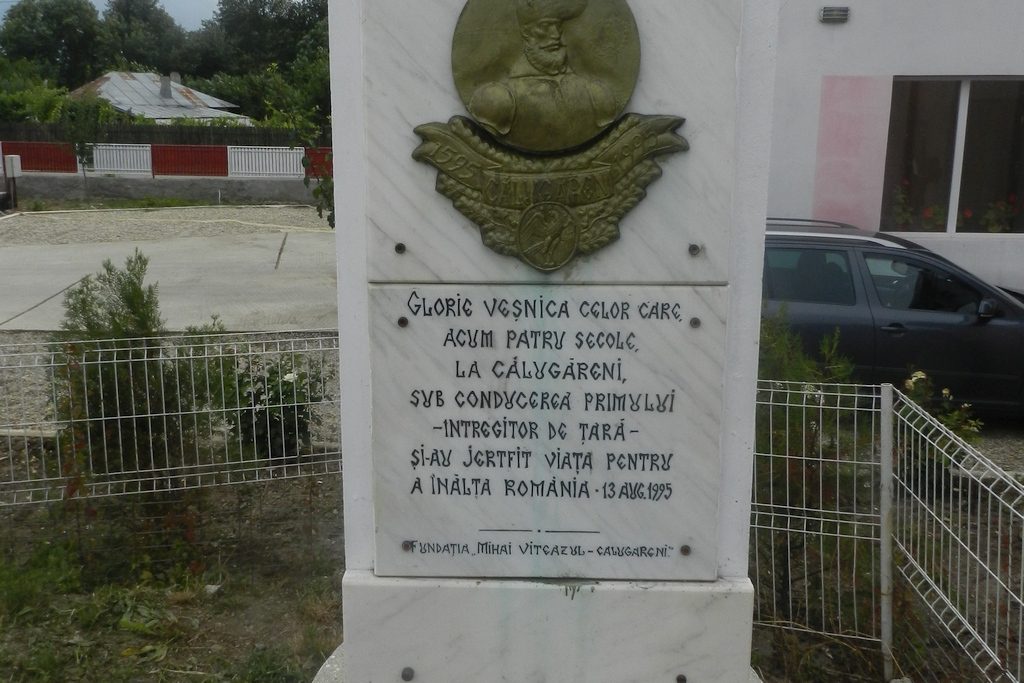

The monument was inaugurated on August 13, 1995 in the memory of those who four centuries ago, in Călugăreni, under the leadership of Mihai Viteazu, sacrificed their lives to come Romania up.
The Monument was built with the help of Mihai Viteazul Foundation.
The battle of Calugareni took place on 23rd August (August 13th according to the old calendar) 1595. The Wallachian army led by Mihai Viteazul, strengthened by several Transylvanian sent by Sigismund Bathory, tried to stop the invading ottoman army led by Sinan Pasa, whose objective was to transform the Wallachia into a pashalic.
The operation has failed and followed by capturing the Bucharest by Turks and by tactical withdrawal of Mihai in the mountains. Subsequently, reinforced with a larger army, Mihai had to remove the Ottomans, defeating them decisively at the Battle of Giurgiu in the mid of October 1595.
Net favorable balance of forces was the Ottoman army. Balcescu, citing contemporary sources shows: „ Indeed, the [Sinan] army was, as we know, of 180 000 soldiers, more than ten times larger than of Mihai Vodă, who, although received help from Moldova and Ardeal, stood at merely 16 thousand people and 12 cannons.
Regarding the Christian army manpower, we can say that Mihai Viteazul had under his command more than 10,000 troops and an artillery park composed of 12 large field cannons.
The official Chronicle speaks about 8.000 Wallachian and 2.000 Hungarians. This net unfavorable balance of forces explains the choice of the field made by the voivode over the land, south of Călugăreni, which was wooded, swampy, crossed by Neajlov River, where the movement of attackers could be done only by one way, with a must for crossing the narrow bridge over the river.
In this space, the numerical superiority of the Turks could not be exploited, the land configuration requiring the attack in waves, without wide deployment on the flanks being possible.
A total of 7,000 Ottomans have fallen on the battlefield, and their cannons and a green flag of the prophet fell into Romanian hands.
By Calugareni victory Mihai had succeeded in achieving his key objectives: caused significant losses to enemy, demoralized it and delayed the advance of the Turks, won the time required for focusing the anti- Ottoman forces.
